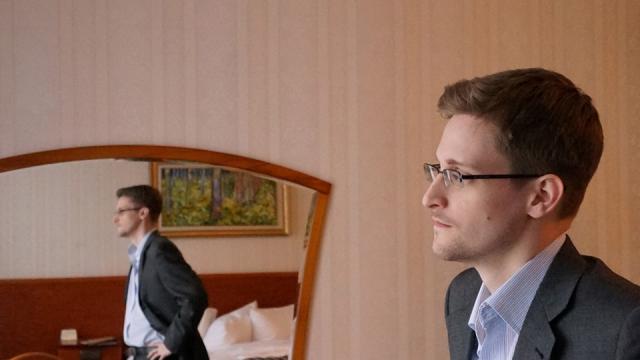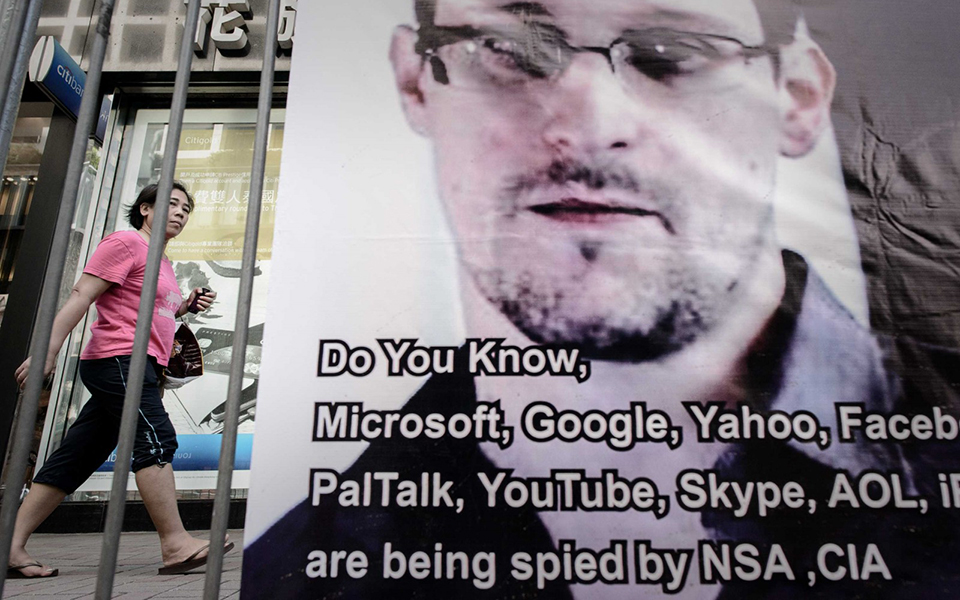
Next month, the trustees who oversee America’s most distinguished journalistic award could face their toughest decision in at least four decades.
The issue before the Pulitzer Prize Board: Does it honor reporting by The Washington Post and The Guardian based on stolen government documents that are arguably detrimental to the national security of the United States, and which were provided by a man who many see as a traitor? Or, does it pass over what is widely viewed as the single most significant story of the year — if not the decade — for the sake of playing it safe?
The politically charged debate surrounding the National Security Agency’s widespread domestic surveillance program, and the man who revealed it, Edward Snowden, is certain to prompt intense discussion for the 19-member Board as it gathers to decide this year’s winners, according to past Board members, veteran journalists and media watchdogs. The debate echoes the historic decision in 1972, when the Board honored The New York Times for its reporting on Daniel Ellsberg’s Pentagon Papers, they said.
“This is an institutional question for them,” said Robert Kaiser, the veteran Washington Post journalist and a previous Pulitzer Prize finalist. “This is a very good argument to have, and there are members of that Board who are going to raise these questions and want to talk about them.”
The risks are manifold, and there is no easy answer: Honoring the NSA reporting — particularly in the coveted category of Public Service — would inevitably be perceived as a political act, with the Pulitzer committee invoking its prestige on behalf of one side in a bitter national argument. In effect, it would be a rebuttal to prominent establishment voices in both parties who say that Snowden’s revelations, and the decision by journalists to publish them, were the exact opposite of a public service. President Barack Obama has said that Snowden’s leaks “could impact our operations in ways that we may not fully understand for years to come.” Former Vice President Dick Cheney has called him “a traitor.” Snowden, who is living in Russia, is facing three felony charges in a criminal complaint filed by the Justice Department.
Yet to pass on the NSA story would be to risk giving the appearance of timidity, siding with the government over the journalists who are trying to hold it accountable and ignoring the most significant disclosure of state secrets in recent memory. It would also look like a willful decision to deny the obvious: No other event has had as dramatic an impact on national and international debates over state surveillance and individual privacy. Last December, in a move that Snowden later described as vindication, a federal district judge ruled that the NSA surveillance Snowden exposed most likely violates the Constitution. Another judge later found the surveillance lawful.
“The stories that came out of this completely changed the agenda on the discussion on privacy and the NSA,” said David Remnick, editor of The New Yorker. “There’s an enormous public good in that, and it’s yet to be proven at all that somehow did great damage to national security.”
Two teams are being considered for their work on the NSA leaks, POLITICO has confirmed. One is made up of The Guardian’s Glenn Greenwald, Laura Poitras and Ewen MacAskill, who published the first landmark report on the NSA’s collection of Verizon phone records, and have since played an integral role in building upon those revelations. The other is Poitras and Barton Gellman, who reported on the wide-ranging surveillance program known as “PRISM” for The Washington Post.
Here, too, the Board faces a challenge: In the eyes of privacy advocates, Greenwald’s work has been much more consequential in the larger arc of the Snowden story, and it was Greenwald who flew to Hong Kong to meet with Snowden and earn his trust. But Greenwald, a staunch anti-surveillance advocate with a brash, outsider’s persona, is not the type of journalist the Pulitzer Board has typically admired. Gellman, by contrast, with his serious and soft-spoken demeanor and decades in the business, comes straight out of Pulitzer central casting. But on what grounds could the Pulitzers recognize Gellman and not Greenwald?
All of these questions will be on the table when the Pulitzer committee meets on April 10 and 11. The winners will be announced on Monday, April 14, at a 3 p.m. news conference at Columbia’s Journalism School.
Sig Gissler, the administrator of the Pulitzer Prizes, and several board members declined to comment on the group’s approach to the NSA reporting, citing the confidentiality of the selection process. “Jurors sign oaths of confidentiality. We certainly do not comment on what is or is not entered or nominated,” Gissler said.
Both Greenwald and Gellman also declined to comment, as did the top editors at The Guardian and The Washington Post. Submissions in each category have already been considered by separate juries, which nominate three finalists to the Board. The Board then considers those nominations for the prizes; with a three-fourths vote, they can move a submission to a different category or recommend another work for consideration. The Guardian’s reporting was conducted through its U.S. outlet in New York, making it eligible for submission.
Several journalists believe that Snowden’s actions should have no bearing on the Pulitzer board’s considerations. It is the reporting that is being honored, not the source, they said.
“The question always is, ‘What was the best journalism produced in the past year?’ And it’s hard to think of a story that has had the impact of the NSA revelations,” said Rem Rieder, the media editor and columnist at USA Today . “These articles made public really important information that the public needs to know, and started a very important national debate over something that should not be decided unilaterally by the executive branch without public input or knowledge.”
Others have a harder time drawing such a definitive line. Michael Kinsley, the veteran political columnist and commentator, has wondered if there isn’t a dubious double standard in the way journalists are honored as heroes while their sources are portrayed as criminals. “If Snowden is guilty of a crime, why isn’t Bart Gellman guilty also?” he asked in an essay for The New Republic last year. Kinsley declined to comment for this piece.
Many of Snowden’s critics are often quick to paint Greenwald, Snowden’s staunchest public advocate, as an accomplice. James Clapper, President Obama’s director of national intelligence, even referred to “Snowden and his accomplices” while testifying before the Senate Intelligence Committee in January.
3 WAYS TO SHOW YOUR SUPPORT
- Log in to post comments













